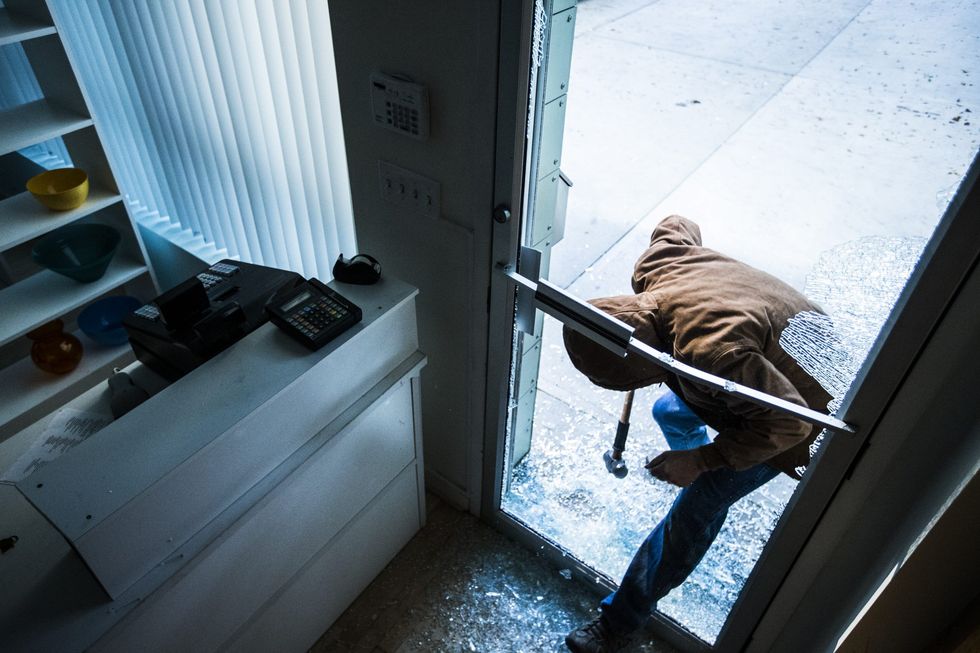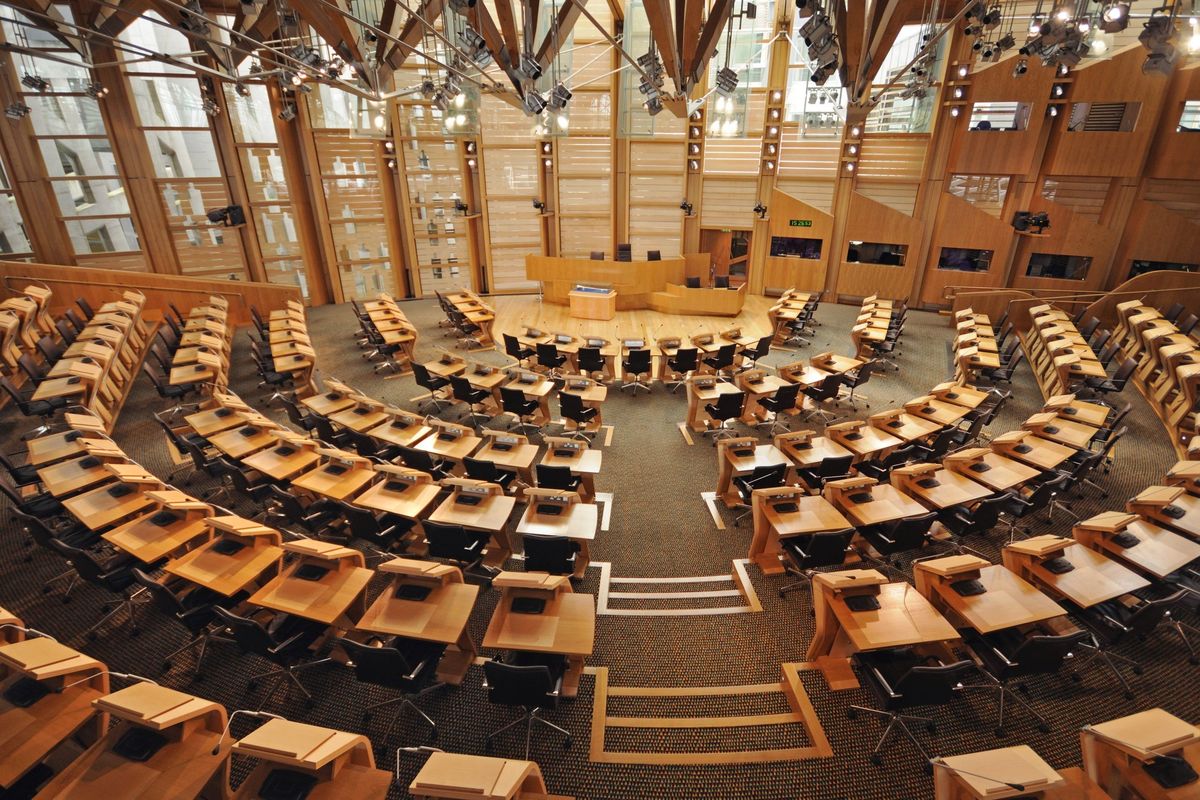The new law passed by the Scottish government last year to protect shop workers against retailer crime has encouraged retailers to report more incidents of abuse and assault. As per the figures from the Scottish Business Resilience Centre around 300 incidents of abuse or threats were reported to police in the first three months of the new law in Scotland.
The protection of worker act came into force in August 2021. The act of the Scottish Parliament was designed to create an offence of assaulting, threatening, or abusing retail workers; and to provide for a statutory aggravation of that offence where the retail worker is enforcing a statutory age restriction.
Usdaw General Secretary Paddy Lillis says, “Usdaw’s message to members has long been ‘Report it to sort it’, so we welcome that the new law in Scotland is encouraging reporting. However, it is a disgrace that retail staff are still suffering too many incidents of violence, threats, and abuse from a significant minority of customers and we continue to urge the shopping public to respect shopworkers.
“Retail staff have been on the frontline throughout the coronavirus crisis, helping to keep our communities fed, despite the risks of contracting the virus. It has been a terrible year for our members, with over 90% of shopworkers suffering abuse, more than two-thirds threatened, and one in seven assaulted. We are saying loud and clear that enough is enough, abuse should never be part of the job.
“We need the Scottish Government, police, and retailers to continue to promote the new law. We want the public to understand that assaulting and abusing shopworkers is totally unacceptable and will land them stiffer penalties. The protection of shopworkers legislation in Scotland should result in retail staff getting the respect they deserve.”

However, the successful enforcement of the new law in Scotland has set an example for the rest of the government to come up with a stringent law against retail crime.
In October 2021, in the House of Lords, Baroness Neville-Rolfe and Lord Coaker tabled amendments to the Police, Crime, Sentencing and Courts Bill aimed at giving retailers in England and Wales similar legal protection as retailers receive in Scotland, where attacking a shop worker is now an “aggravated” offense.
Trade bodies like the Association of Convenience Store (ACS), the British Retail Consortium (BRC), and others have been campaigning to raise awareness for some time and have worked with parliamentarians to shape legislation that would offer better protection in law for retail workers.
On 14th December the Police, Crime, Sentencing and Courts (PCSC) Bill had a Report Stage sitting, where an amendment addressing abuse towards public facing workers was considered. Amendment 84, proposed by Government Minister Baroness Williams of Trafford, proposed to introduce an aggravated offence for attacking an individual serving the public. This amendment went to a vote and was accepted by the house.
This means that those who commit violent offences against retail staff are one step closer to receiving tougher sentences for their crimes. The amendment stipulates that the courts must treat assaults committed “against a person providing a public service, performing a public duty or providing services to the public” can be treated as an aggravating factor.
In response, Helen Dickinson OBE, Chief Executive of BRC had said in a press release, “We welcome the Government’s move to ensure that those who commit violent offences against retail workers receive tougher sentences for their crimes. The Government has demonstrated that it understands the scale of violence and abuse that our colleagues face, and that it will act to protect them. Crime against retail staff has been rising year on year, and nobody should go to work fearing their safety. The BRC will continue to campaign on behalf of the three million retail colleagues who work tirelessly to ensure we all have access to the food and goods we need.”
ACS chief executive James Lowman commented, “After many years of campaigning we are pleased the government has introduced tougher penalties for attacks on shopworkers. This sends a much-needed signal to our colleagues that violence and abuse will not be tolerated.”

However, only a law cannot protect retailers against retail crime, more police force and quick responses from the police are equally important. Sunita Aggarwal, Director at Spar in Wigston, Leicestershire says, “It (retail crime) has a major impact on the store. It leaves staff feeling vulnerable and isolated as there is not much help or support out there for them. It is not seen as a priority by the police. The police response on retail crime is very poor and this creates low morale for the retailers and staff.”
She adds, “The government can play their role by offering more support to retailers, possibly with a higher presence of community support officers. There should be a simpler and more effective process of prosecuting. We need to have direct contact with the police to help us to prevent the ongoing problem of retail crime. If we had a stronger relationship with the police and access to information on offenders, we could work together to prevent the incidents from happening.”
ACS said, “We still need more resources for police forces to focus on neighbourhood policing and delivery of the drug rehabilitation strategy to reduce acquisitive crime that often leads to violence in local shops.”
Most of the retailers are not satisfied with the police response. According to BRC’s retail crime report 2021, 60 per cent of retailers rated the ‘police response positively’ as poor or very poor with only 40 per cent rating it good or fair.
Most of the independent stores face so-called ‘low-level’ crimes like theft and verbal abuses which are not even reported to police on regular basis. The BRC report says that only 54 per cent of the crime of violence and abuse are reported by retailers. To tackle the ‘low-level’ retail crime faced by independent stores and to help the government by providing accurate statistic on the retail crime for more stringent law retailers must report all sorts of crime committed in their stores.
The Protection of Workers (Retail and Age-restricted Goods and Services) (Scotland) Act 2021states:
- It is an offence for a person to assault, threaten or abuse another person who is a retail worker and who is engaged at the time in the retail work.
- A person who commits an offence is liable to imprisonment for a term not exceeding 12 months or a fine or both
- Evidence from a single source is sufficient to prove the offence
- If a person behaves in threatening or abusive manner towards the worker and intends by behaviour to cause the worker to fear or harm then the person is liable for punishment under the law
- As per section 4 of the act, the person is punished if the complaint is aggravated by reason of the retail worker's enforcement of a statutory age restriction.
Timeline of the Police, Crime, Sentencing and Courts (PCSC) Bill:
- June 2021: Shadow Policing Minister proposes an amendment to the Police, Crime, Sentencing and Courts (PCSC) Bill that would introduce a new offence for abusing a shopworker.
- June 2021: Government rejects amendment to PCSC Bill, stating that existing legislation is adequate to deal with violence and abuse. Suggests that employers need to do more to increase reporting levels.
- June 2021: Home Affairs Select Committee, led by Rt Hon Yvette Cooper MP, publishes report on violence and abuse against retailers, calling for urgent action to address the problem. Recommendations include a new offence for attacking shopworkers, and a more formal response to incidents from police.
- September 2021: Home Office responds the Home Affairs Select Committee report
- November 2021: Amendments to the PCSC Bill related to attacks against shopworkers were debated and withdrawn.
- December 2021: Amendment proposing to introduce an aggravated offence for attacking an individual serving the public was put to a vote and accepted by the house.

